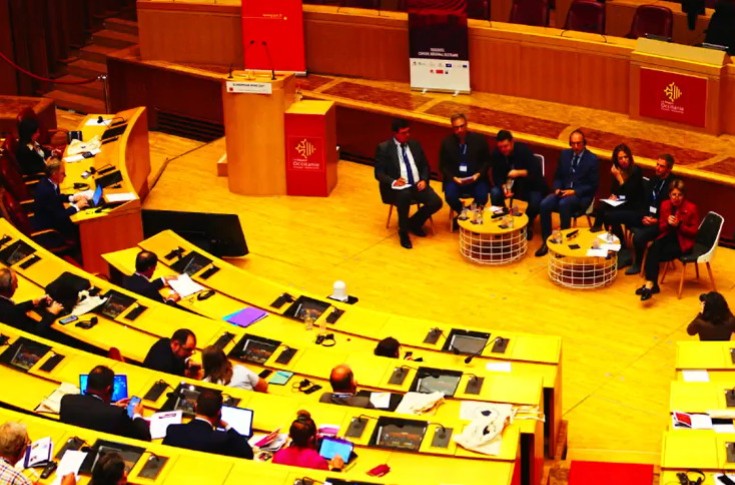“In some vineyards, if you completely remove glyphosate, it will lead to abandonment”

Reducing all the molecules and only working with an increasingly small range will lead to the opposite of what we’re aiming for”, warned Christophe Bou, co-chairman of the South-West France wine marketing board (IVSO) at the first European wine day in Toulouse on October 27. For the Gaillac winegrower, an all-out reduction approach “will create resistances. We will no longer have any molecules to really combat various diseases. For weeding, it creates floral inversions and that’s not what we want either. In some ways, we should perhaps keep more molecules to work with but place restrictions on their usage and techniques. But initially, they should not be totally eliminated”. Bou used glyphosate as an example: “In some sloping/gravelly vineyards, if you completely remove glyphosate, it will lead to abandonment of the vineyard, because for now, we don’t have any other solutions”.
European MP Anne Sander admitted that “when we talk about wine at the European Parliament, we often link it to Green Deal policies. This often leads to new restrictions for the farming industry, particularly the wine industry”. Sander stressed that parliamentary discussions about EU pesticide reduction (SUR) will be difficult at the end of November. The MEP compared the “reasonable” report by the agricultural committee at the European Parliament and the report by the environmental committee which adds more pressure to reduce plant protection products. “Clearly the legislative battle will be played out at plenary level. We will need your support at national and European level to increase pressure so that we can restore balance to the text”, announced Sander.





